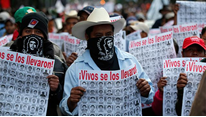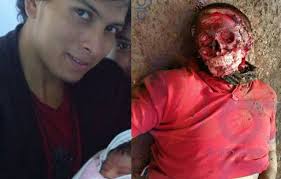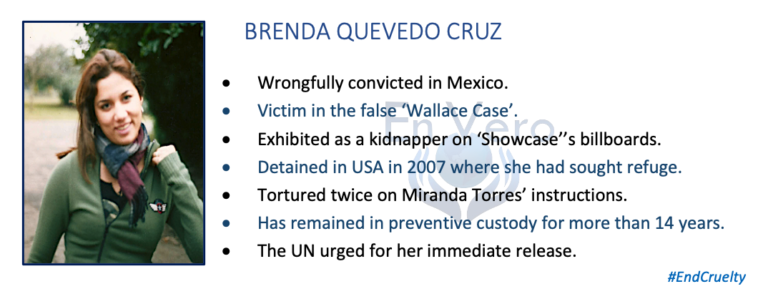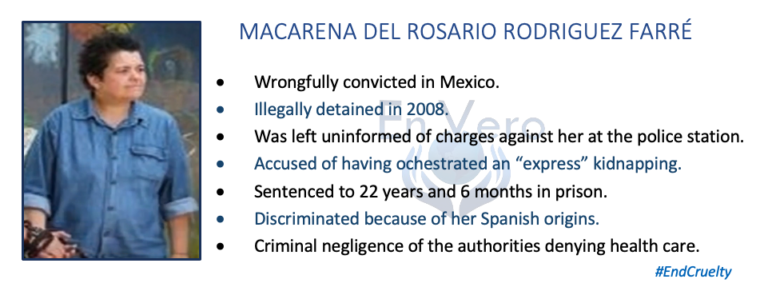
Source: El Toque (Spanish)
Author: Gabriel Infante
October 26, 2014
Translation: RZ for CART / ACDV
Violence and enforced disappearance in Mexico
The disappearance of the 43 student teachers from Ayotzinapa, in the state of Guerrero, seems to have awakened Mexican society from its slumber as it faces the latest and gravest act of enforced disappearance in the country. The outrage has not gone unnoticed. It has stirred worldwide attention and reaction.
“Alive they took them, alive we want them back!” is the public outcry that is resounding in all of Mexico with the hope that not only the Mexican government actually investigate and provide the whereabouts of the young students but that the international community also strongly condemn the acts and put pressure on the state of Mexico.
The current protests have had a positive effect in attracting worldwide attention. Now is the right time to raise awareness on the estimated 30,000 or more persons who have disappeared in Mexico according to various government and non-government human rights organizations.
It should be noted that during former President Felipe Calderon’s administration (2006-2012), the National Human Rights Commission (CNDH) reported 24,800 cases of disappearance; the Secretariat of the Interior (Ministry of the Interior), under the current government, registered 26,567 cases, while according to the Los Angeles Times in Mexico and the Mexican NGO, Propuesta Civica, there were 20,851 cases of which 11, 201 involved men and 8,340 involved women.
In its 193-page report, Mexico’s Disappeared: The Enduring Cost of a Crisis Ignored, published on February 20, 2013, Human Rights Watch (HRW) found compelling evidence revealing that members of all branches of the security forces carried out enforced disappearances including the army, the navy, and the federal, state and local police in at least 149 cases. The report also urged President Enrique Pena Nieto to devise a strategy to investigate and put an end to the disappearances.
Now is the right time for President Enrique Pena Nieto to take into account HRW’s recommendation, not only to solve the case that has called our attention, but also all the other cases of disappearance and to avoid that more Mexicans succumb to the same fate. The case of the students of Ayotzinapa should trigger the need for this country to stop the pattern of impunity and to start delivering justice.
During the search for the 43 students, 35 mass graves were discovered. In the first 26 mass graves, 28 bodies were found but none of them corresponded to the missing students. These findings should not come as a surprise to anyone. The federal and state authorities are obliged to identify the bodies of the many disappeared persons and find out how they got there and who is responsible.
Today, Mexico and the rest of world are coming together in solidarity with the families and friends of the 43 students but it is also a time to consider the more than 30,000 families who alone for years, have had to painfully deal with the unknown whereabouts of their loved ones and suffered from the ill-treatment and indifference of the authorities.
The public must not lower its guard once Ayotzinapa is forgotten, but on the contrary, it should continue to raise its voice on behalf of all those who remain missing so that this does not happen again.





